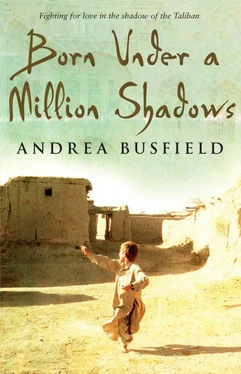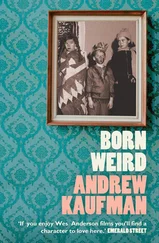“Drinking alcohol is against Islam,” she reminded me. “Now you’ll have to pay for your sin in the fires of Hell. You’re probably not even ten years old, Fawad. At this rate you’ll be burning for eternity along with all the Godless foreigners!”
“I didn’t know it was beer!” I shouted back.
“There! That’s another ten years in Hell for lying, plus five more for shouting at your mother. I’d shut up now if I was you.”
“But—”
“But! But! No more buts! Get out of my sight before I change my mind and beat you!”
I shook my head slowly. It appeared Jahid was right. There was just no reasoning with women, especially when the woman was your mother.
I turned from the kitchen and shuffled toward the garden to escape the fury I didn’t feel I strictly deserved. I was a boy after all. What about James? He had made me commit the sin, and he was a man. Would he be forced to work for Hederi the Blind for a handful of afs I could just as easily find in the gutters of Chicken Street? No such luck. And this was the new democratic Afghanistan!
Further evidence of this great injustice appeared as I turned the corner to seek refuge in the garden and saw James, my great undoer, sitting hunched over his laptop wearing dark glasses. His forehead looked like a great weight was hanging above it, pressing deep lines into the skin below.
“Brilliant,” I mumbled, and turned back toward my room.
Defeated, I crawled into bed to sleep off the sickness that was crawling over my skin like body lice.
Pir Hederi’s shop was on the corner of Street 15, opposite a roundabout and close to the British Embassy. It was a messy place with cans spilling from shelves, boxes piled high on the floor, bleeding cloths, towels, and other cleaning stuff, and crates of fruit that had seen better days but still seemed to sell. During my first day on duty he told me that I’d been hired because he’d sacked his “bastard shit of a nephew” who used to place boxes and chairs in his path just to see him fall. He was also a thief, apparently.
“Don’t try anything on, son,” he warned me. “I may not have eyes no more, but I can still see.”
He pointed his gnarly hand at the doorway, where a dog as big as a small donkey stood guard, watching me as if I was that day’s dinner.
“What’s his name?” I asked, keeping a careful eye on the beast that threatened to eat me. He was as old and as ugly as his master, with gray stumps for ears, marking him out as a former fighter.
“Whose name?”
“The dog.”
“Dog.”
“Yes, the dog.”
“Dog. His name is Dog.”
“Oh.”
Despite his appearance, and obvious lack of imagination, I soon found out that Pir Hederi was actually quite funny. And from what I could tell, he didn’t need my help at all. If a man came in asking for shaving foam, Pir would move from his seat in front of the cigarette counter, shuffle over to the far right corner, reach out to the second shelf down, and come away with the correct can. If some no-good kids came in and tried to lift any of the stock, Dog would block their way out, growling and snarling, spit hanging from his teeth like slimy string and the hairs on his back standing to attention, until the would-be thieves pissed their pants and cried for their mothers. Pir would then charge them fifty afs for a safe exit.
No, he didn’t really need me, but I got the impression that Pir was a lonely old man looking for someone to talk to. So, the first week, I mainly poured him tea and sat on the Pepsi boxes eating dry chickpeas as he wandered through his thoughts and war memories.
“We lost a lot of good men that day,” he said one afternoon after recounting another tale about his time with the mujahideen. I nodded wisely, then grunted after remembering he couldn’t actually see me. There had been sixty of them that day, all Pashtuns, “all committed to the cause of freedom,” and they were armed to the teeth with Kalashnikovs and rocket launchers. They’d just carried out a daring daylight attack on a Russian base north of Kunar. “Hundreds of enemy soldiers died in the assault,” said Pir, “caught unawares by the sheer daring of our raid and knocked senseless by a lifetime of vodka. We’d also battered them with rocket-propelled grenades and a wall of bullets fired by men with nothing to lose and everything to gain.” It was a famous victory for the mujahideen, he told me, a triumph that was spun into songs and sung around campfires for years to come. And as quickly as they had appeared, rising from nowhere to unleash hell on the Russians, they melted away again, “like ghosts drifting back into the landscape.”
But they hadn’t got away with the attack.
As the victorious mujahideen crossed the mountains of Nuristan, marching their way toward secret war camps dug into rock, they were swallowed up by a blizzard that ripped at their clothes and tore at their skin. In the roar of the wind they failed to hear the blades of the helicopter that came whooshing over their heads, dropping brilliant burning light upon their path. As they ran for their lives, the Russian air force tracked them every step of the way, on and on into the night, finally forcing them into a narrow gorge where they were ambushed by five hundred waiting Russian soldiers. The mujahideen didn’t stand a chance, but somehow they fought their way out of the valley to split and scatter under the cover of a leafless forest, throwing themselves into icy mountain rivers and burying themselves under a meter of snow.
“Yes, we lost a lot of good men that day,” said Pir with a sigh. “We also lost most of our toes…”
I looked at Pir’s cracked feet. All ten toes peeked out from the leather straps, carrying thick yellow nails.
“So, is that how you came to be blind then? From fighting in the jihad?”
“Mercy, no,” he grumbled. “I lost my sight the day I got married. I saw my wife for the first time, and she was that ugly my eyes closed down and refused to work again.”
Pir usually finished with me about five thirty in the evening. If I timed it just right, I’d hit the main road about the same time Georgie was being driven home, and I would hitch a ride with her back to the house. Like most foreigners, she had her own driver, Massoud, which I thought was pretty good considering she only combed goats for a living.
“They’re not just any old goats,” Georgie told me one day as I laughed about her being the richest goat herder in the whole of Afghanistan. “They’re cashmere goats.”
“So what? A goat’s a goat, born to be eaten or dragged around a field by buzkashi horsemen! What’s so special about some dumb cashmere goat?”
“The wool, sweetie. It’s very expensive. Women in the West will practically sell their souls for sweaters and shawls made out of cashmere. And luckily for your country, Afghanistan is home to some of the finest cashmere in the world.”
“So why aren’t all the goat herders rich then?”
“Well, most goat owners don’t realize the value of what they’ve got, so they let the cashmere drop off, or they shear it off with the rest of the wool and throw it away. You see, it’s the soft undercoat of the goat which is the good bit, and it needs to be combed out and separated. In its raw, unwashed state, this can sell for about twenty dollars per kilogram.”
“Ho, that’s not bad.”
“It’s not bad, but it’s also not that good.”
“No?”
“No. Not yet.” Georgie smiled and raised her eyebrows as if she was about to tell me some big secret. “Even if the farmers know about the special wool, they will only collect it. It’s then shipped off to Iran or Belgium or China, where it’s mixed with inferior wool and sometimes reimported, which is pure madness. Now, if we could set up the facilities to treat the wool in Afghanistan and make it as good as good can be, your goat herders would be very rich men indeed. Well, compared to what they are now anyway. It would also create more jobs and develop into a proper industry. And that’s why I’m here in your country, to help everyone do just that.”
Читать дальше












